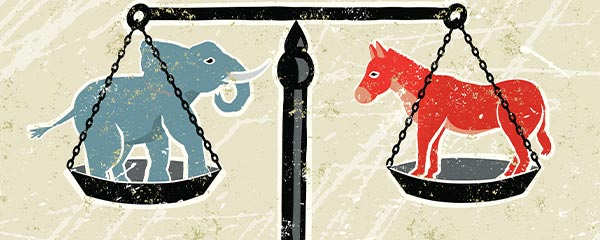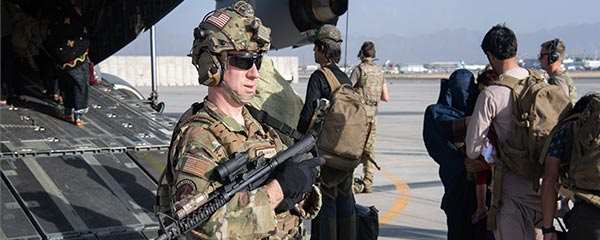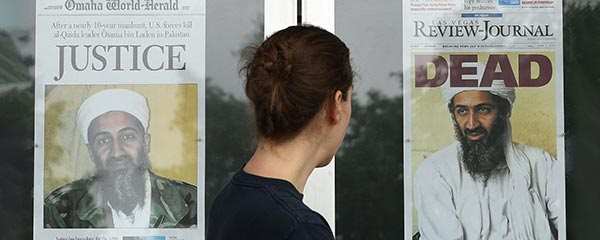Terrorism and National Defense
Explore Gallup's research.

Cyberterrorism and U.S. adversaries developing nuclear weapons continue to rank as the most worrisome global issues to Americans, but fewer than in recent years find China's economic power highly concerning.

Americans view the Republican Party slightly more favorably than the Democratic Party, yet both parties are rated negatively on balance. The GOP is still seen as better able to handle international threats and ensure prosperity.

A year after the U.S. troop withdrawal from Afghanistan, 50% of Americans say the U.S. made a mistake in sending troops to the country, while 46% disagree.

Two decades after the 9/11 terror attacks, 64% of U.S. adults, a new high in Gallup's trend, believe Americans have permanently changed the way they live because of those attacks.

Americans tend to support the decision to withdraw troops from Afghanistan, although the execution of that process gets low marks.

Americans are now evenly divided in their views on whether it was a mistake for the U.S. to send troops to Afghanistan in 2001.

Gallup takes a look back at how Osama bin Laden's death affected attitudes about U.S. leadership and terrorism.

Americans are unlikely to have strong reactions to Joe Biden's defense budget and his decision to withdraw troops from Afghanistan.

Americans consider cyberterrorism and the development of nuclear weapons by North Korea and Iran to be the most critical of 11 potential threats to the U.S.

A slim majority of Americans say they would like their senators to vote to convict Donald Trump in his second impeachment trial.

Americans' satisfaction with each of 21 key national policy issues has declined or held steady compared with readings one year ago.

As the U.S. celebrates Memorial Day, Americans continue to have more confidence in the military than in any other major institution in the country.


